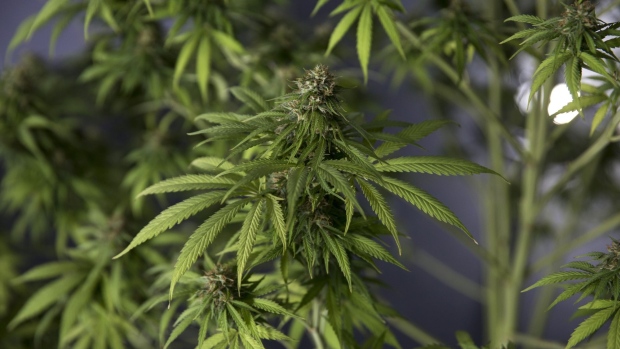Apr 1, 2022
House Votes to Decriminalize Marijuana, Expunge Criminal Records
, Bloomberg News

(Bloomberg) -- The House voted Friday to decriminalize marijuana, expunge federal convictions on pot-related charges and impose taxes on cannabis producers and importers.
The legislation passed 220-204 with support from most House Democrats and three Republicans. Two Democrats voted against the bill.
The House had passed a version of the bill in 2020, but it was never considered in the Senate, where Majority Leader Chuck Schumer plans to introduce a separate marijuana legalization bill this month.
Still, any move to decriminalize pot faces significant hurdles in the Senate, where many Republicans and some Democrats, including Senators Jeanne Shaheen and Jon Tester, oppose such a move, and legislation would require 60 votes to advance.
Advocates argue it is a matter of public health and racial justice.
The House bill “would treat marijuana as a public health issue rather than a criminal matter and would begin to rectify the heavy toll that criminalization has taken, particularly on communities of color and low income communities,” House Judiciary Chair Jerry Nadler, author of the House bill, said Friday.
The Marijuana Opportunity Reinvestment and Expungement Act would remove marijuana from the schedule of drugs listed in the Controlled Substances Act. It prevents the government from denying an individual federal benefits based on use or possession of marijuana and federal agencies could consider a person’s past or present use of cannabis in deciding on security clearances.
The bill would also create a process to expunge and seal federal marijuana convictions, including pending cases, and vacate eligible existing sentences.
A 5% excise tax would be placed on cannabis products produced in or imported into the United States. After the first two years the tax would increase until it reaches 8% by year five. An occupational tax of $1,000 per year would be placed on cannabis production facilities and warehouses.
The tax revenue would be used to establish an Opportunity Trust Fund that would be used to aid individuals most harmed earlier enforcement of marijuana prohibitions. A portion would go toward the Small Business Administration to increase access to capitol for cannabis-related businesses owned by those with previous convictions.
According to a Joint Committee on Taxation estimate, the bill would increase federal revenues by more than $8 million over 10 years.
Thirty-seven states have decriminalized marijuana for medicinal or recreational adult-use.
“If states are the laboratories of democracy, it is long past time for the federal government to recognize that this experiment in legalization has been a resounding success,” Nadler said.
Republican Representative Andy Biggs of Arizona, who voted against the bill, said the MORE Act “doesn’t just federally deschedule marijuana, it incentivizes marijuana use and distribution.”
Biggs argued the bill was “short sighted” and did not adequately consider possible effects.
©2022 Bloomberg L.P.

